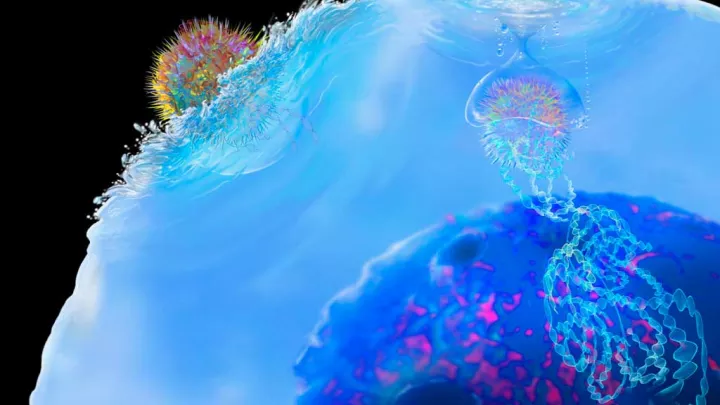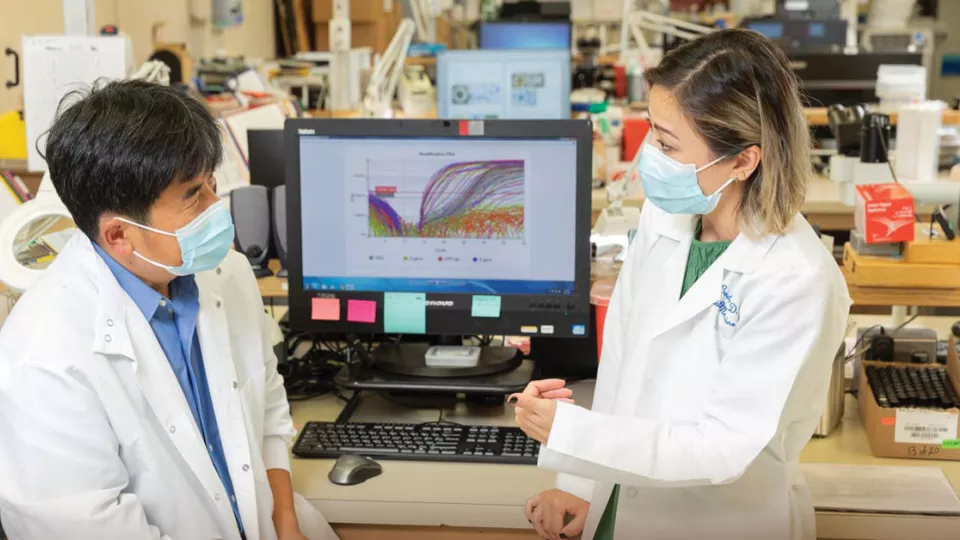
ResearCHLA 2021 Highlights
In the News
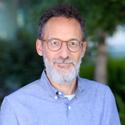
Michael I. Goran, PhD, led a study analyzing the effects of consuming sugary beverages while breastfeeding. Higher sugar consumption during nursing negatively impacted children’s cognitive development at 2 years of age. The study was covered by multiple outlets across the United States and internationally.
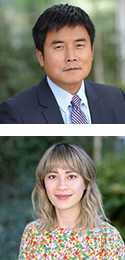
Multiple news outlets, including The Washington Post and The New York Times, featured the work of Xiaowu Gai, PhD, and Jennifer Dien Bard, PhD. Along with colleagues in the Department of Pathology and Laboratory Medicine, Drs. Gai and Dien Bard published a number of studies tracking the spread of SARS-CoV-2 through genomic testing, using genomics to track potentially dangerous variants and contributing their findings to national and international databases.
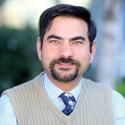
Sugar consumption can lead to obesity and fatty liver disease, including scarring of the liver. In a preclinical study published in Scientific Reports, a Nature journal, Rohit Kohli, MBBS, MS, showed that consumption of stevia extract, a natural noncaloric sweetener, can actually improve markers of fatty liver disease and prevent scarring. Other artificial sweeteners did not have this effect.

Julie Jaffray, MD, and Claudia Borzutzky, MD, spoke to The New York Times about their research on safe and effective ways to help teenagers whose heavy menstruation interferes with daily activities. Their study, published in JAMA Pediatrics, discusses the high prevalence of young girls with heavy menstrual bleeding, as well as best practices for diagnosing underlying causes and treatment.
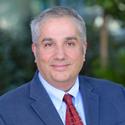
CAR T-cell therapy is a powerful agent against leukemia when traditional chemotherapies fail, but the therapy has not been successful in solid tumors and other cancers. Shahab Asgharzadeh, MD, and colleagues modified CAR T-cells to be more potent and selective using a technology called SynNotch gating. The preclinical study, published in Nature Communications, suggests a potential for more widespread use of CAR T-cell therapy.
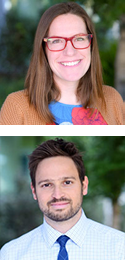
Etan Orgel, MD, MS, and Diana Moke, MD, MS, conducted the largest study to date characterizing hearing loss associated with the common chemotherapy agent cisplatin. This landmark study, published in The Lancet Child & Adolescent Health, provides new insights into which children are at risk for hearing loss and suggests future approaches to minimize hearing loss without compromising treatment. Dr. Orgel also will lead a randomized phase 2 clinical trial through the Therapeutic Advances in Childhood Leukemia & Lymphoma (TACL) consortium, headquartered at Children’s Hospital Los Angeles. The Associated Press reported on phase 1 of the IDEAL trial, which showed diet and exercise can improve the effectiveness of chemotherapy in children with leukemia.

Attending Surgeon Lorraine Kelley-Quon, MD, was the lead author on the first-ever set of guidelines for safely prescribing opioids to manage pain after children’s surgery. The evidence-based guidelines, published in JAMA Surgery, were reported by The New York Times.
Awards and Honors
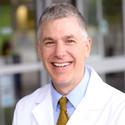
James Amatruda, MD, PhD, was named the inaugural Dr. Kenneth O. Williams Chair in Cancer Research. Dr. Williams was a pillar of the Hematology-Oncology team at Children’s Hospital Los Angeles for four decades; the chair is made possible thanks to a generous gift from longstanding hospital supporters Helen and Bill Close.
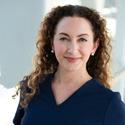
Jesse Berry, MD, Associate Director of The Vision Center at Children’s Hospital Los Angeles, received the highly selective 2021 USC Mentoring Award for Faculty Mentoring Graduate Students. The award recognizes Dr. Berry’s efforts in going above and beyond what is expected and in fostering an engaging, supportive and inclusive academic environment.

Pat Levitt, PhD, was named to the Governing Board of the California Institute for Regenerative Medicine (CIRM) for a six-year term. In the coming years, CIRM will include a new focus on brain disorders, which will be significantly advanced by Dr. Levitt’s expertise in neuroscience.

The National Institute on Drug Abuse of the National Institutes of Health (NIH) awarded Michele Kipke, PhD, $14.3 million to examine disparities among underrepresented youth in the prevention and treatment of HIV/AIDS.

Bradley Peterson, MD, received $6.1 million from the Patient-Centered Outcomes Research Institute (PCORI) to initiate a study in more than 400 youth with anxiety.

Spearheaded by Principal Investigator Johanna Olson-Kennedy, MD, the Division of Adolescent and Young Adult Medicine’s Center for Transyouth Health and Development was awarded $4.9 million from the Eunice Kennedy Shriver National Institute of Child Health and Human Development of the NIH to study the impact of early medical treatment in transgender youth.
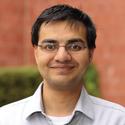
Chintan Parekh, MD, received a $2.3 million grant from the National Institute of Allergy and Infectious Diseases of the NIH to study a specific gene in T-cells that may help researchers make immunotherapies like chimeric antigen receptor T-cell therapy (CAR-T) more effective.

Pia Pannaraj, MD, MPH, received $3.4 million from the Eunice Kennedy Shriver National Institute of Child Health and Human Development of the NIH to study global disparities of the rotavirus vaccine. She was also awarded $1.3 million to study SARS-CoV-2 viral transmission and immunity within households. The SARS-CoV-2 funding is part of a larger, multicenter study enrolling over 250 families to better understand the behavior of the virus and why it affects some individuals more than others within the home.
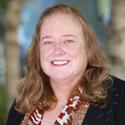
The Department of Health and Human Services awarded Leslie F. Clark, PhD, MPH, of Adolescent and Young Adult Medicine, $2 million to examine the effects of school and neighborhood context on the effectiveness of teen pregnancy prevention programs. This research, using 11 longitudinal datasets of federally funded studies, will increase understanding of vulnerable populations still at greater risk of unplanned pregnancies and will identify needs to address.
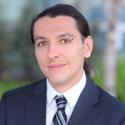
Stefano Da Sacco, PhD, received $1.9 million from the National Institute of Diabetes and Digestive and Kidney Diseases of the NIH to study the mechanisms of glomerular injury in an autoimmune disease called primary membranous nephropathy.
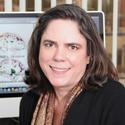
The National Institute of Environmental Health Sciences of the NIH awarded Elizabeth Sowell, PhD, $1.8 million to continue her research into evaluating the effects of lead exposure on brain and cognitive development in children.

Ching-Ling (Ellen) Lien, PhD, studies the ability of zebrafish to regenerate cardiac tissue after substantial injury to the heart. Dr. Lien has received $1.7 million from the National Heart, Lung and Blood Institute of the NIH to study how the lymphatic system of the heart may contribute to regeneration of damaged tissue, giving insight into congenital heart conditions.

Brian G. Dias, PhD, studies how stress and trauma affect not only individuals but also their offspring. The National Institutes of Health has awarded Dr. Dias $1.5 million to study how a brain region called the zona incerta influences dimensions of post-traumatic stress disorder.

A research partnership between Children’s Hospital Los Angeles and AltaMed has garnered a $2.4 million grant from the state of California to study the effects of adverse childhood experiences (ACEs). The lead principal investigator on the grant, Pat Levitt, PhD, hopes to develop ways to identify the impact of ACEs as early as possible to prevent toxic stress and health challenges in children. Funding comes from the California Initiative to Advance Precision Medicine.
New Faces

Mohamed Abou-el-Enein, MBChB, PhD, MSPH, joined Children’s Hospital Los Angeles and USC as the inaugural Executive Director of the Cell Therapy Program. Dr. Abou-el-Enein is trained as a physician and received a clinical research diploma from Harvard University, a doctorate from Charitè Medical University in Berlin and a Master of Science in public health from the London School of Hygiene & Tropical Medicine. He is working with researchers to accelerate promising scientific discoveries into clinical applications and to establish robust bio-manufacturing capabilities.

Matthew Deardorff, MD, PhD, joined the Department of Pathology and Laboratory Medicine as Director of Translational Genomics at the Center for Personalized Medicine. He earned his medical degree, completed his clinical training and began his career at the University of Pennsylvania and Children’s Hospital of Philadelphia. Dr. Deardorff ’s expertise in genetics, genomics, rare diseases and electronic health record implementation guides him in his new role as the inaugural Director of the Personalized Care Program at Children’s Hospital Los Angeles.

Sabrina Derrington, MD, MA, HEC-C, joined Children’s Hospital Los Angeles as the inaugural Director of the new Center for Pediatric Bioethics. She earned her medical degree from the University of California, Davis, School of Medicine and her master’s in bioethics from Loyola University of Chicago. Dr. Derrington completed her residency and fellowship at Children’s Hospital Los Angeles and most recently served as Associate Professor and Associate Director of Clinical Ethics and Education at Lurie Children’s Hospital of Chicago.

Brian G. Dias, PhD, joined the Developmental Neuroscience and Neurogenetics Program and is studying how stress and trauma affect genes, gametes (reproductive cells), physiology and neurobiology. He earned his doctorate from the University of Texas at Austin and came to Children’s Hospital Los Angeles from Emory University, where he was an Assistant Professor in the Department of Psychiatry and Behavioral Sciences.

Ramon Durazo-Arvizu, PhD, joined Children’s Hospital Los Angeles as Faculty Director of the Biostatistics and Data Analysis Core. He provides analytical expertise to investigators and works on applying statistical methods to epidemiology and clinical research. Dr. Durazo-Arvizu received his doctorate in applied mathematics from the University of Arizona and came to Children’s Hospital Los Angeles from Loyola Medical Center. His research background includes work to describe and understand racial and ethnic health disparities.

Bridget Fernandez, MD, MS, joined the Division of Medical Genetics and is using deep phenotyping approaches to better understand the genomic underpinnings of autism spectrum disorder. She is also Associate Director of Clinical Research at The Saban Research Institute. Dr. Fernandez received a bachelor’s degree in human physiology from McGill University and her master’s and medical degrees from Memorial University. Dr. Fernandez also completed a residency in medical genetics at the Hospital for Sick Children in Toronto.

Miller Huang, PhD, joined the Cancer and Blood Disease Institute. His research focuses on central nervous system cancers—seeking to find the genetic causes of medulloblastoma and neuroblastoma, as well as new therapeutic strategies to treat these diseases. Dr. Huang received a bachelor’s degree in bioengineering from the University of California, Berkeley, and a doctorate in molecular pathology from the University of California, San Diego.

Shafali Spurling Jeste, MD, joined the Neurological Institute as Chief of the Division of Neurology and Co-Director of the Neurological Institute. She earned her medical degree from Harvard Medical School and completed her residency and fellowship at Boston Children’s Hospital. Dr. Jeste is helping to grow the clinical, academic and training programs in Neurology and is collaborating with other specialties to develop clinical research programs of excellence in neurodevelopmental disorders. Her research includes developing methods to improve diagnoses and treatments for children with neurodevelopmental disorders.
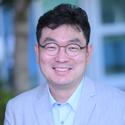
JinSeok Park, PhD, joined the Cancer and Blood Disease Institute with an interest in understanding the role of the tumor microenvironment in cancer development. He studies how cancer cells decode physical properties of their environment, regulating cancer-related signaling pathways to promote tumor development. Dr. Park obtained his bachelor’s in chemical and biological engineering from Seoul National University in South Korea and his doctorate in biomedical engineering from Johns Hopkins University.

Sarah A. Richman, MD, PhD, joined the Cancer and Blood Disease Institute, where she is continuing her research into how to redirect T-cells to better recognize and target tumors. She also serves as an attending physician in the Transplantation and Cellular Therapy Section. Dr. Richman received her medical and doctorate degrees from the University of Illinois at Urbana-Champaign and completed a residency at Columbia University Irving Medical Center and a fellowship at Children’s Hospital of Philadelphia.

Tamara D. Simon, MD, MSPH, joined the Division of Hospital Medicine as an attending physician and serves as Associate Director of Training and Education at The Saban Research Institute. She received her medical degree from the University of North Carolina at Chapel Hill School of Medicine and a Master of Science in public health from the University of Colorado, Denver. Dr. Simon’s research involves improving the evidence base for inpatient care for children with complex medical needs, focusing on hydrocephalus.

Beth Smith, PhD, DPT, PT, joined the Division of Research on Children, Youth and Families as Director of the Infant Neuromotor Control Laboratory. She studies the development of neural control of movement in infants with either typical development or developmental disabilities. Dr. Smith, who came to Children’s Hospital Los Angeles from USC, earned a doctorate in physical therapy from Boston University and a doctorate in kinesiology from the University of Michigan.
